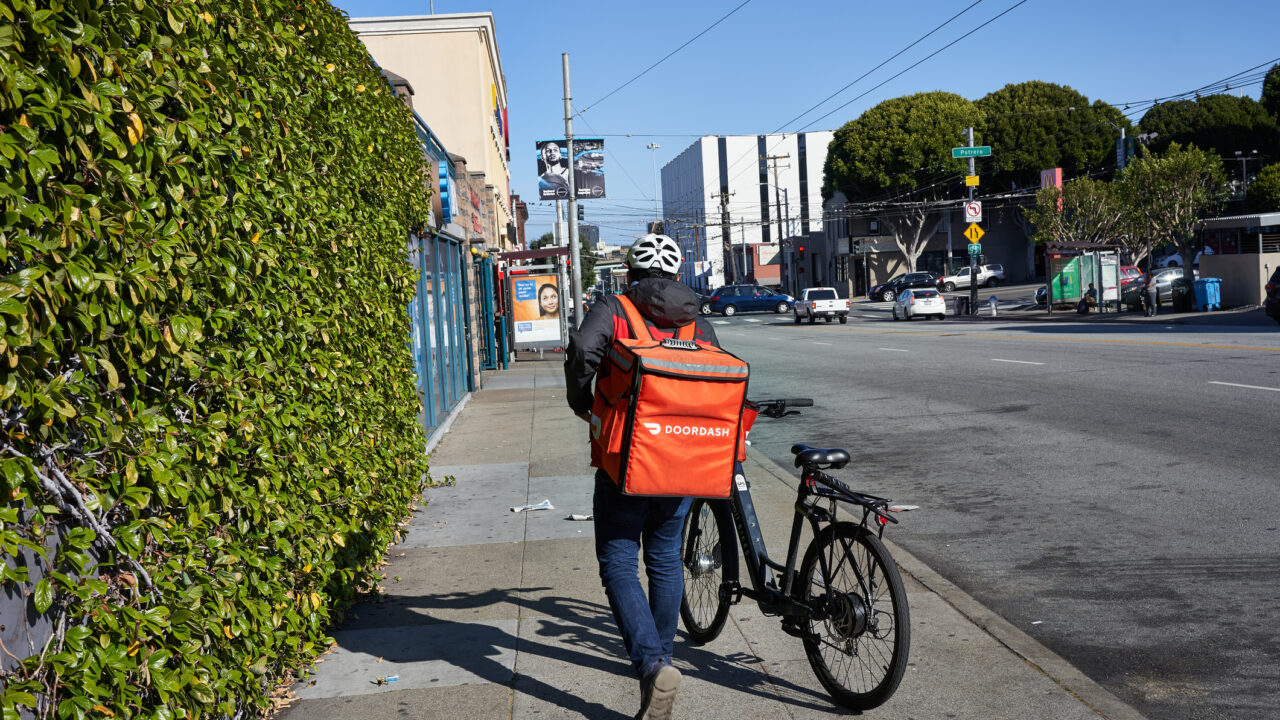Stay Informed
"*" indicates required fields
Blog

New Approach to Gig-Worker Benefits Finds Success in Pennsylvania Pilot Program
Gig work—whether driving a car for Uber or Lyft or delivering food and groceries for DoorDash or UberEats—has its benefits: schedule flexibility, the independence to pick and choose jobs, no overbearing bosses, etc. However, these app-based workers also lack literal benefits, such as health insurance and paid time off.
But a pilot program offered a first-of-its-kind benefits package for gig workers, specifically Pennsylvania DoorDashers. This “portable benefits” program proved successful and well-favored by participating gig workers, according to a new report by the Commonwealth Foundation.
Last April, DoorDash, with support from Gov. Josh Shapiro, launched a pilot program, offering interest-accruing accounts to eligible Pennsylvania drivers. To be eligible, DoorDashers must have completed 100 deliveries from Pennsylvania-based merchants and earned a minimum of $1,000 of pre-tipped income within a three-month period. Following that period, 4,400 eligible DoorDashers enrolled—nearly a quarter of the state’s entire DoorDash community.
Once eligible, DoorDashers received 4 percent of their pre-tip income in their accounts. They could also personally contribute to the accounts.
Recipients could use the money toward retirement savings, health insurance, paid time off, or emergency savings. Reasons for account withdrawals varied among the participants. Nearly one-third used the funds for paid time off. About 21 percent used the funds for unspecified emergencies. About 14 percent withdrew money for more traditional work-related benefits, such as medical insurance or retirement.
Participating DoorDashers earned, on average, $400 in their flexible savings accounts. “This could cover a theoretical $400 emergency medical expense that over a third of Americans currently struggle to cover without borrowing,” writes Dr. Nam D. Pham, a managing partner at NDP Analytics, which also researched the pilot program.
The program’s flexibility proved to be wildly popular. Eight in ten participants preferred the flexibility offered by the portable benefits savings rather than “receiving a higher level of benefits but reduced flexibility.” Most participants—59 percent—said the program would improve their financial security if it were offered permanently.
Lawmakers also noted the program’s success. Governor Shapiro called the program a “positive step forward.” Given the program’s success, some lawmakers have called to expand and codify a permanent portable benefits program. Last year, former state Sen. Ryan Aument, a Republican from Lancaster County, sponsored a bill to “provide Pennsylvania app-based workers with access to the benefits and protections.”
DoorDashers represent a small segment of the larger independent contractor community. About 12 million people—roughly 8 percent of the national workforce—work as independent contractors, according to the U.S. Bureau of Labor Statistics.
For many contractors, gig work isn’t their full-time job. The majority of DoorDashers—54 percent—work full- or part-time jobs. The rest represent a wide spectrum of socioeconomic situations: 10 percent are stay-at-home parents or caregivers, 8 percent are students, 7 percent are self-employed, and 4 percent are retired. Pilot program participants largely reflected these nationwide numbers, with a plurality—46 percent—working full- or part-time jobs.
Benefits for independent contractors have become a contentious political issue. While some believe that the government must play a more prominent role in providing benefits, others favor less-intrusive measures, such as the portable benefits program.
“Portable benefits are a better alternative to heavy-handed mandates that limit independent contracting in a misguided attempt to expand access to paid time off or health care benefits,” the Commonwealth Foundation concludes in its report.
The full report is available on the Commonwealth Foundation’s website.
Connect With Us
Email Sign Up
"*" indicates required fields